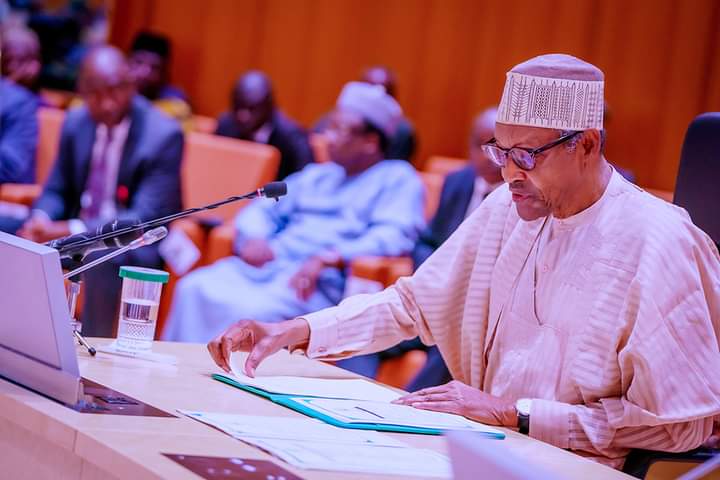Editorial
Subsidy Removal Without Domestic Refining?

In the 2023 fiscal document presented before the joint sitting of the two chambers of Nigeria’s National Assembly, President Muhammadu Buhari proposed that the subsidy regime would end with his administration on May 29, 2023. However, not a few lawmakers vowed to extend the terminal date for the subsidy removal to the end of 2023.
The Minister of Finance, Budget and National Planning, Zainab Ahmed, disclosed that the Federal Government paid N18.397 billion in subsidies per day. The minister also stated that N6.210 trillion had been disbursed as a fuel subsidy to independent oil marketers from 2013 to 2021. This declaration has elicited reactions from some quarters who feel the subsidy figures are falsified, while others say the subsidy regime is unsustainable as it is hurting the country’s economy.
Recently, the Independent Petroleum Marketers Association of Nigeria (IPMAN) insisted it was opposed to the removal of subsidy on petrol, if the country failed to refine the product. According to the association, with the government importing premium motor spirit (petrol) consumed in the country, removing the over N3.5 trillion subsidy would expose Nigerians to arbitrary pricing.
The Tide remains steadfast in this long-canvassed position that while the subsidy in its present form is destructive and unsustainable, domestic self-sufficiency in refining is the only lasting solution to product availability, price stability and maximisation of the benefits of crude. It defies logic that Nigeria, a leading producer of crude oil, bankrupts itself by importing and subsidising refined petroleum products.
It needs not be said that if the subsidy on PMS is withdrawn, it will plunge several Nigerians into extreme poverty. Recall that Nigeria has maintained the infamous title of ‘World Poverty Capital’ according to the World Bank since 2016. The World Bank data had shown that four in every 10 Nigerians lived below the poverty line of $1.9 per day. Sadly, efforts by the present government to address the rising challenges of poverty through the National Social Investment Programme meant to improve the standard of living of the average Nigerian has yielded no positive result for a project that gulps N500 billion annually.
Next, the current inflation rate of 21.82 per cent is believed will certainly drive more Nigerians below the poverty line by the end of 2023. Globally, economies are devising measures and approaches to cushion the devastating effect of rising prices on the disposable income of their citizens. However, the present federal administration has failed to assist impoverished and vulnerable Nigerians.
Germany, Austria, Qatar, Saudi Arabia, Rwanda, Ghana, and a few other economies are giving out financial incentives to households, cost-of-living allowances, unemployment benefits, an adjustment in wages and salaries, and the roll-out of public transport measures to reduce the impact of inflation. But the Nigerian government has been insensitive to the plight of the citizens, with much attention channelled towards the just-concluded 2023 general election.
Unemployment in the country increases by geometric proportion. The Nigerian Economic Summit Group (NESG) has projected the unemployment rate in Africa’s most populous nation to rise to 37 per cent in 2023. This means that the projected unemployment rate is about four percentage points higher than the National Bureau of Statistics data of 33.3 per cent as of 2020. Additionally, many state governors cannot pay the current minimum wage of N30,000 following financial constraints.
Marketers and other groups in the downstream sector of the Nigerian petroleum industry have said that fuel prices may hit N750 per litre should the petroleum subsidy be removed. Being an OPEC member country, it is a shame for Nigeria to remain the only member that imports over 90 per cent of its refined petroleum needs. The country has no reason not to return its domestic refining. The precipitous removal of the fuel subsidy without making strategic plans or giving particular attention to domestic refining is tantamount to strangulating hand-to-mouth Nigerians.
Nigeria’s energy crisis is self-inflicted. At home, the subsidy thrives on opacity, corruption, abandonment of domestic refining, and a shutting out of the private sector in the downstream oil and gas sector. On the international front, Russia’s war on Ukraine has triggered a jump in prices. Rather than reap a windfall, however, Nigeria’s indefensible reliance on importation is damaging its brittle economy.
Before the fuel subsidy is removed, it will be appropriate for the country to go all out to resuscitate its four comatose refineries and embark on building new ones to mitigate the consequences of the withdrawal. The poser here is: Why are Nigeria’s four ailing refineries yet to be resuscitated? Over the years, previous administrations and the present one have made many attempts to restore those moribund refineries. Unfortunately, they were all in vain, since some avaricious Nigerians sabotaged that much-needed valiant effort.
Certainly, domestic refining will firm up the naira; the total removal of the petrol subsidy will precipitate an economic recession. They should only withdraw it in phases accompanied by a vigorous programme to promote private refineries with incentives, privatisation, and the creation of an investment-friendly environment. The establishment of modular refineries should be approved. These refineries have capacities ranging from 1,000 to 30,000 barrels per day.
Our leaders may just be banking on the coming on stream of Dangote’s 650,000 barrels per day refinery now undergoing finishing touches in Lagos and BUA group’s oil refineries. Dangote industry said in January that the refinery would come on stream before the end of Buhari’s administration. Perhaps this is one of the ways Nigeria would escape the worst case scenario painted by industry watchers. The truth is, there is no alternative to domestic self-sufficiency in refining; that should be the urgent national priority.
Editorial
Time For GL 17 In Rivers

Editorial
For A Prosperous 2026


